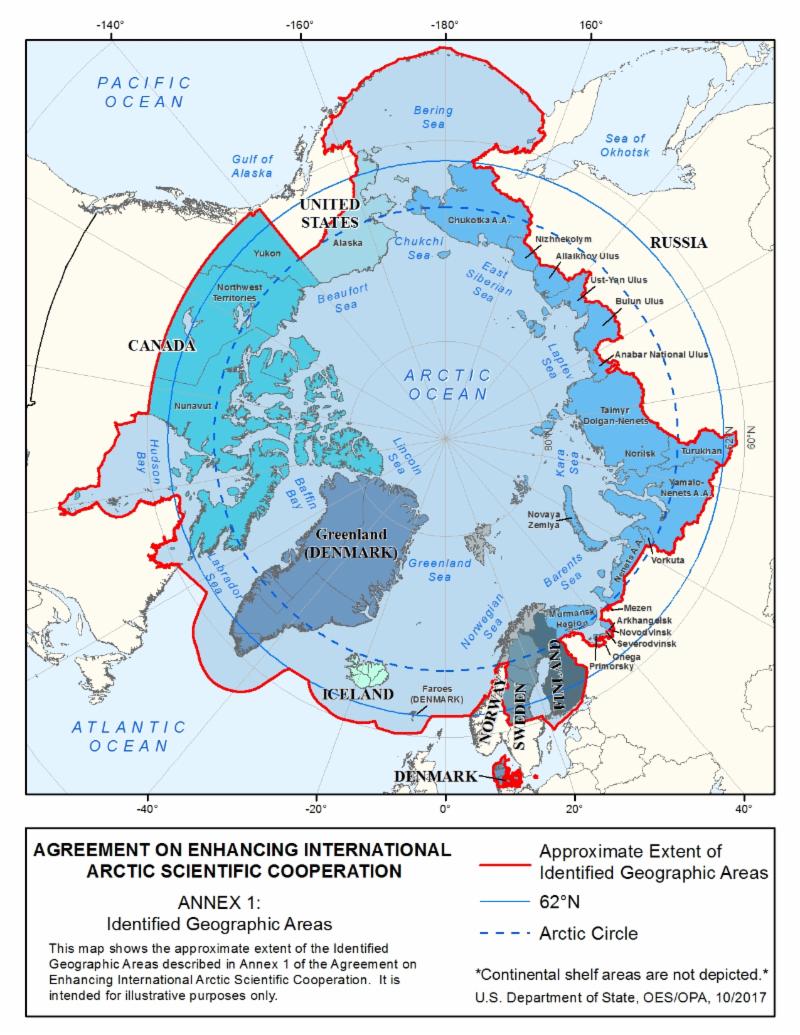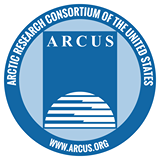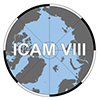|
|
|
|
|
|
|
|
New agreement on Arctic science cooperation goes into effect today.
A legally binding international agreement on Arctic scientific cooperation will make it easier for scientists to conduct research in the North. The map below, from here, shows the area over which the agreement applies. Other versions of the map can be downloaded here.
The US government's official point of contact for this agreement is the USARC. If while attempting to conduct research in other Arctic countries, US-based researchers encounter access issues or other matters addressed in the agreement, they should contact the USARC using the information provided here. Or email info@arctic.gov, or call 1-703-525-0111.
|
Media
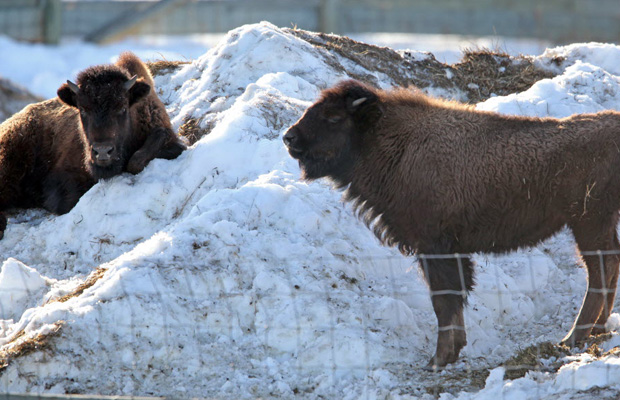 Alaska Bison Await Shipment to Siberia in Project to Fight Climate Change. Alaska Bison Await Shipment to Siberia in Project to Fight Climate Change. Twelve Alaska bison are scheduled to depart next week for the Russian Arctic to participate in an unusual experiment and documentary, recreating an ice-age ecosystem, complete with a modern version of the woolly mammoth, looking for ways to slow climate change. "We're hauling bison to Siberia to save the world," said Luke Griswold-Tergis, an independent filmmaker from Haines who is organizing the unusual cargo flight of the 500-pound critters. Anchorage Daily News
Waste-Eating Bugs are Disappearing in the Arctic as Temperatures Rise. Scientists continue to link new environmental changes to rising global temperatures. In the Arctic, waste-eating bugs are on the decline, and experts are pointing to milder seasons and fewer winter freeze-thaw events. Plant-eating insects have increased in population, while arthropods that consume living waste have shrunk in numbers. AccuWeather
Previously Unreported Arctic Phytoplankton Transport Could Jeopardize Fish Populations. Tiny gypsum crystals can make phytoplankton so heavy that they rapidly sink, transporting large quantities of carbon to the ocean's depths. Experts from the Alfred Wegener Institute recently observed this phenomenon for the first time in the Arctic. As a result of this massive algal transport, in the future, large amounts of nutrients could be lost from the surface waters. When marine algae die, they usually float in slow motion to the ocean's depths. Phys.org
|
|
Future Events
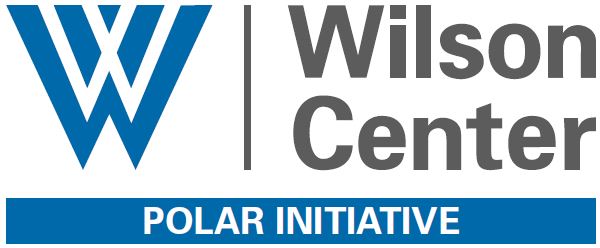 serves as chair of the Arctic Council through May 2019. As part of its chairmanship goals, Finland has committed to advancing meteorological cooperation and capacity building. Further developing meteorological cooperation allows for improved monitoring and observation networks, better management of climate and water-related risks, and more accurate forecasting of meteorological phenomena in the Arctic. In an effort to continue this work, the Embassy of Finland in the US, the Meteorological Institute, and the Wilson Center's Polar Initiative will convene a broad spectrum of representatives to share the results and recommendations from a March meeting, and further advance and explore the current state of Arctic meteorology and the future needs of the scientific community. serves as chair of the Arctic Council through May 2019. As part of its chairmanship goals, Finland has committed to advancing meteorological cooperation and capacity building. Further developing meteorological cooperation allows for improved monitoring and observation networks, better management of climate and water-related risks, and more accurate forecasting of meteorological phenomena in the Arctic. In an effort to continue this work, the Embassy of Finland in the US, the Meteorological Institute, and the Wilson Center's Polar Initiative will convene a broad spectrum of representatives to share the results and recommendations from a March meeting, and further advance and explore the current state of Arctic meteorology and the future needs of the scientific community.
This half-day program will focus on the capabilities of the EarthScope Transportable Array and the impact it is having on scientific research and operational monitoring in areas as diverse as earthquakes, weather forecasting, volcanoes, tsunamis, and ecosystems. The hosts are particularly interested in exploring inter-agency / multi-agency interests and opportunities for how the Transportable Array observing capability can be used, particularly with respect to the compatibility of different observing interests. The National Science Foundation has committed only to a short duration deployment but is open to broadening the application to other science observations for longer durations, if the obligation to remove the stations is shared or undertaken by other stakeholders.
- Addressing the energy field of the future;
- Defense energy systems in the North;
- Natural hazards and aerospace/defense;
- Empowering Alaska's entrepreneurs;
- Navigating the changing Arctic; and,
- Developing local and global energy solutions.
The Effects of Climate Change on the World's Oceans, June 4-8, 2018 (Washington, DC USA). The 4th International Symposium will bring together experts from around the world to better understand climate impacts on ocean ecosystems - and how to respond. The event is hosted by a variety of groups including International Council for the Exploration of the Sea (ICES), N. Pacific Marine Science Organization (PICES), Intergovernmental Oceanographic Commission of UNESCO (IOC), and Food and Agriculture Organization of the United Nations (FAO). Session 16 includes Fran Ulmer, Diana Bull, Apurva Dave, Lawson Brigham, and Esther Babson, among others. 
Vision on Marine Infrastructure, June 11, 2018, 1:00-3:00 pm (Washington, DC
).
The U.S. Committee on the Marine Transportation System and its Marine Transportation System Federal partners will share their visions and priorities on maritime infrastructure, which refers to physical infrastructure, informational infrastructure (such as aids to navigation, nautical charts, and real-time meteorological and oceanographic services), and mariner needs. Open to the public, but RSVP is required to access the location. Please contact Jaya.Ghosh@cmts.gov by June 6, 2018 to RSVP. See here
for additional details.
 POLAR 2018, June 15-27, 2018 (Davos, Switzerland). POLAR2018 is a joint event from the Scientific Committee on Antarctic Research (SCAR) and the International Arctic Science Committee (IASC). The SCAR meetings, the ASSW and the Open Science Conference will be hosted by the Swiss Federal Institute for Forest, Snow and Landscape Research WSL under the patronage of the Swiss Committee on Polar and High Altitude Research. The WSL Institute for Snow and Avalanche Research SLF is organizing POLAR2018. POLAR 2018, June 15-27, 2018 (Davos, Switzerland). POLAR2018 is a joint event from the Scientific Committee on Antarctic Research (SCAR) and the International Arctic Science Committee (IASC). The SCAR meetings, the ASSW and the Open Science Conference will be hosted by the Swiss Federal Institute for Forest, Snow and Landscape Research WSL under the patronage of the Swiss Committee on Polar and High Altitude Research. The WSL Institute for Snow and Avalanche Research SLF is organizing POLAR2018.
From Entering the Field to Taking the Helm, Women's Perspectives on Polar Research, June 20, 2018 (Kongresszentrum Davos, Switzerland). This event is hosted by ARCUS and co-sponsored by USARC. Research findings are shaping our understanding of the issues that women face in technical fields, particularly those with strong connections to fieldwork. Concerns include a deficit of female leadership due to the so-called "leaky pipeline," a lack of safety and inclusivity at field locations, and explorations of ways in which research agendas have discounted contributions of women. Despite historical barriers to participation in polar field work, women have made outstanding contributions to polar physical, biological and social sciences, as well as to community-level efforts to coordinate and communicate science. In the past decade, women have stepped into leadership roles at polar institutions. Yet evidence of persistent challenges, reflected both in academic studies and media reports, compels us to examine the sources of those challenges and to explore solutions to ensure a bright future for all those who wish to engage in polar research.
5th European Conference on Permafrost, June 23-July 1, 2018 (Chamonix-Mont Blanc, France). In the continuation of the International and Regional conferences convened by the International Permafrost Association, the 5th European Conference on Permafrost (EUCOP 2018) will be held in Chamonix-Mont Blanc, France, 23rd June - 1st July 2018. The conference aims at covering all relevant aspects of permafrost research, engineering and outreach on a global and regional level. Conference website: here.
Arctic Observing Summit 2018, June 24-26, 2018 (Davos, Switzerland). The Arctic Observing Summit (AOS) is a high-level biennial summit that provides a platform to address urgent and broadly recognized needs of Arctic observing across all components of the Arctic system. AOS 2018 will be held in Davos, Switzerland ( June 24-26) and will focus on pressing issues in the implementation and support of sustained observations that can be addressed through a business-case lens. To that end, short submissions are requested that address any and all aspects of the overarching theme and sub-themes. Additional information can be found here.
17th International Congress of Circumpolar Health (ICCH17), August 12-15, 2018 (Copenhagen, Denmark). The ICCH congresses are held every third year in different locations in the circumpolar area and represent the largest scientific meetings worldwide on circumpolar health. The ICCH congresses serve as the primary source of information exchange and scholarly communication in issues relating to circumpolar health. More than 750 participants generally register and participate in each Congress, and more than 400 scientific papers or posters are usually presented.
UArctic Congress 2018, September 3-7, 2018 (Oulu and Helsinki, Finland). The UArctic Congress 2018 will bring together key UArctic meetings and a science conference into one single gathering, including business meetings of the Council of UArctic, Rectors' Forum, Student Forum, and Thematic Networks & UArctic Institutes Leadership Team. The Congress is an integral part of the Finland's Arctic Council chairmanship program, and open to the public. The event will highlight the themes and priorities of the Finnish chairmanship, including the goals of the United Nations' 2030 Agenda for Sustainable Development, and the Paris Agreement under the UN Framework Convention on Climate Change.
Scientific Exploration of the Arctic and North Pacific (SEA-NorP), September 25-27, 2018 (Mt. Hood, Oregon USA). This workshop will include discussion of hypotheses that can be tested by scientific drilling in the region, the technology necessary to achieve those goals, ideal sites for drilling based on existing data, and where additional site survey data is needed. The goal of the workshop organizers is that multiple proposals will be initiated at the workshop, both for full cruise legs and for shorter, targeted expeditions around the following themes: ocean gateways, geohazards, volatile cycling, ice histories at transition zones, biosphere and climate.
The second Arctic Biodiversity Congress is hosted by the Conservation of Arctic Flora and Fauna (CAFF), the biodiversity working group of the Arctic Council, and the Ministry of the Environment, Finland. The second Arctic Biodiversity Congress will build on the success of the first Congress, held in 2014 in Trondheim, Norway, and will bring together scientists, policymakers government officials, Indigenous representatives, Traditional Knowledge holders, industry, non-governmental organizations, and others to promote the conservation and sustainable use of Arctic biodiversity.
|
|

  
4350 N. Fairfax Drive, Suite 510
Arlington, VA 22203, USA
External links in this publication, and on the USARC's World Wide Web site ( www.arctic.gov) do not constitute endorsement by the US Arctic Research Commission of external Web sites or the information, products or services contained therein. For other than authorized activities, the USARC does not exercise any editorial control over the information you may find at these locations. These links are provided consistent with the stated purpose of this newsletter and the USARC Web site.
|
|
|
|
|
|
|
|
|
 Alaska Bison Await Shipment to Siberia in Project to Fight Climate Change. Twelve Alaska bison are scheduled to depart next week for the Russian Arctic to participate in an unusual experiment and documentary, recreating an ice-age ecosystem, complete with a modern version of the woolly mammoth, looking for ways to slow climate change. "We're hauling bison to Siberia to save the world," said Luke Griswold-Tergis, an independent filmmaker from Haines who is organizing the unusual cargo flight of the 500-pound critters. Anchorage Daily News
Alaska Bison Await Shipment to Siberia in Project to Fight Climate Change. Twelve Alaska bison are scheduled to depart next week for the Russian Arctic to participate in an unusual experiment and documentary, recreating an ice-age ecosystem, complete with a modern version of the woolly mammoth, looking for ways to slow climate change. "We're hauling bison to Siberia to save the world," said Luke Griswold-Tergis, an independent filmmaker from Haines who is organizing the unusual cargo flight of the 500-pound critters. Anchorage Daily News
